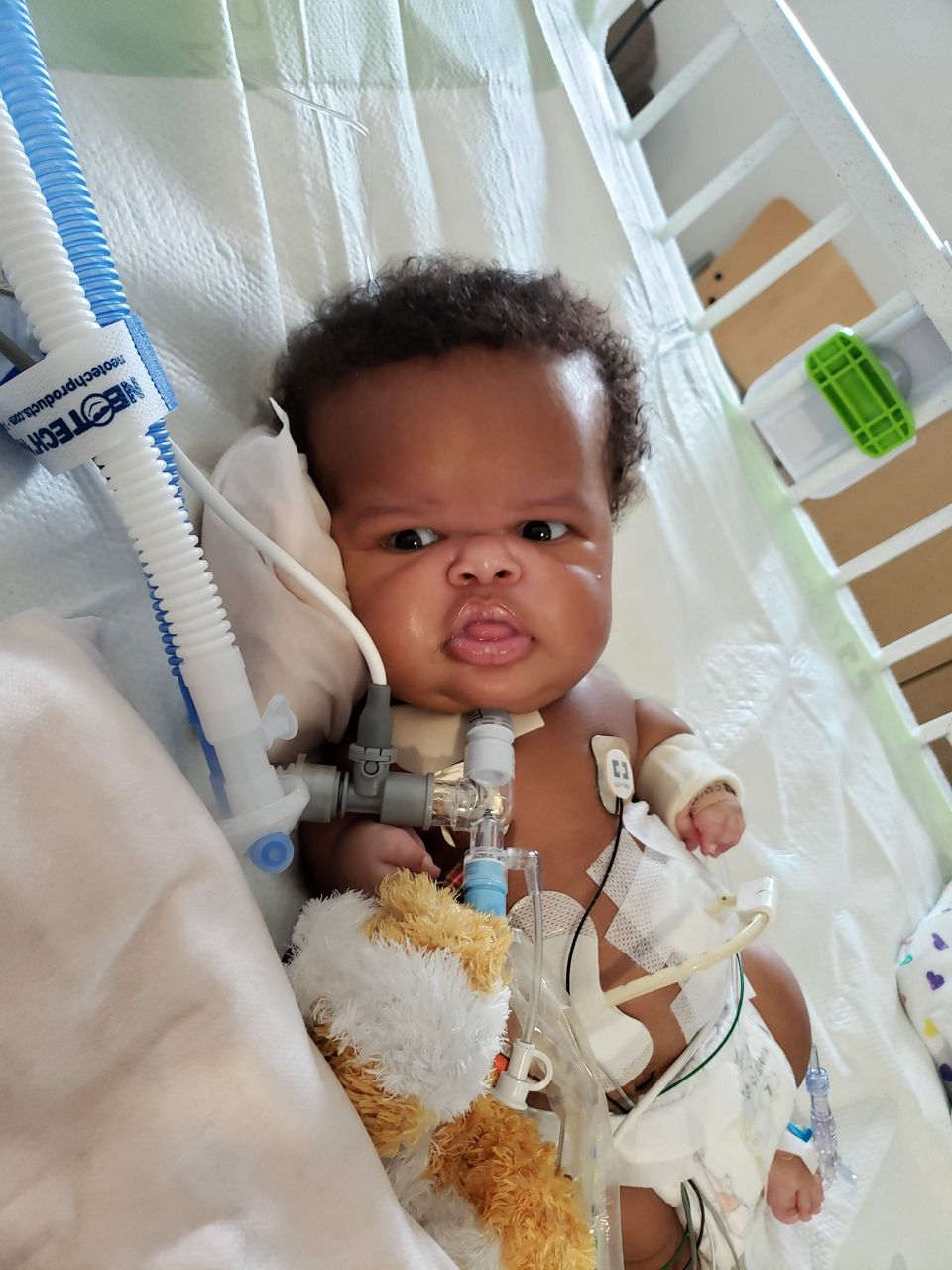Imagine being told by your doctor that your unborn baby won’t survive. For Ashequka Lacey, it was her worst nightmare, but in 2018 it was her reality. All she could do was turn to her faith.
“I know that God had a plan,” Lacey said. “I didn't know then what the plan was, but what was inside of me said, 'no, you're going to keep this baby.' Termination was honestly never an option.”
Her son, Jakobi Bays was born in 2019 with a rare, severe form of dwarfism called Thanatophoric dysplasia. It causes very short limbs and a narrow chest, making it hard to breath. It’s called a lethal form of dwarfism, as most babies are stillborn or die during early infancy. Jakobi defied the odds.

Now 5 years old, Jakobi is 26 inches tall. Lacey said doctors told her he’ll always look like a baby, but his teacher said cognitively he’s anything but.
“He's very smart, actually,” said Cathy Saunders, an intervention specialist. “He's non-verbal. He has to show what he knows through other ways.”
Jakobi explains his needs through an iPad-based speech generating device. He selects phrases with his eyes.
“It’s so nice because he has a voice,” Lacey said. “A lot of times with his diagnosis, people think that cognitively they don't know what they're talking about or what it is that they want. But Jacoby is very intentional about his wants and his needs.”
His world looks different from others. Jakobi navigates many appointments including regular occupational, physical and feeding therapy, but Lacey said he’s just like any other child. She described her son as happy, smart, loving and a jokester.
“He loves his tablet,” Lacey said. “That is the biggest thing he rewatches. He's been watching the same show for five years. And he loves sweets. He doesn't like vegetables like any other kid.”
The mom of two shares their lives on Instagram and in children’s books. She’s the author of a few books including “Jakobi and Me,” a book that shows readers the dynamic of Jakobi and his big brother Ameir. Ameir knows Jakobi is different and knows people will have questions. The book guides readers through Jakobi's condition from the perspective of his big brother.
With her words Lacey hopes to flip the narrative about people with disabilities. She writes how they’re not disabled, but differently-abled.

“That's why in the book I said, there's no such thing as normal. What is normal? Somebody tell me,” Lacey said. “And the biggest thing with the book was I couldn't find something for my then 9 year old to relate to. So clearly I am a person who is solution based. We're going to figure this out. If I can't find it, I will create it. And that's what I did and that's really what I do.”
Her children’s skincare line, Baby Bays Naturals, aims to have a similar impact. She originally formulated the products for Jakobi after no other products were helping his eczema. The results were so shocking, she now makes the products available to everyone. As she continues to expand, she plans to use inclusive marketing to make sure children like hers are represented in stores and online.
“How cool will it be for a child who can't speak to walk through Target and see like that little boy has a trach like me? It's important. Representation matters,” Lacey said.
She hopes through their visibility to ultimately remind people that kindness also matters.
“He's truly changing people that he comes in contact with all over the world, because of who he is,” Lacey said. “I can see the acceptance of people that look different and also people just being more compassionate. Now for my son, he has a diagnosis that you can see, but for people who you can't see their diagnosis because they look normal on the outside, it still needs to be represented. You need to know when people are different and how to deal with those people.”

Many moments of fear have been overshadowed by moments of joy, laughter and love. His in-home nurse, Chasity Glover, said she’s constantly inspired.
“He is such a joy,” Glover said. “Regardless of what a normal life would be for us. Jacoby is still just as happy as you want to be as long as you don't take his Motown Magic. He is just as happy as you want to be.”
For Lacey it wasn’t the life she expected, but it’s one she’s learning to embrace.
“I didn't know what I was capable of until I had to be capable of it,” Lacey said. “Jakobi literally came in and was like, I'm about to flip everything upside down. But put it all together at one time.”
A mother’s worst nightmare turned a dream come true. Proof that life’s biggest challenges can sometimes be life’s biggest blessings.
“It's never been about anything other than people knowing what's possible,” Lacey said. “So not even if it's just Jakobi’s diagnosis, but also glorifying God and what a miracle actually looks like. That's the whole point, is to let people see what can happen if you truly believe.”
For more information about Lacey’s children’s books visit here.



